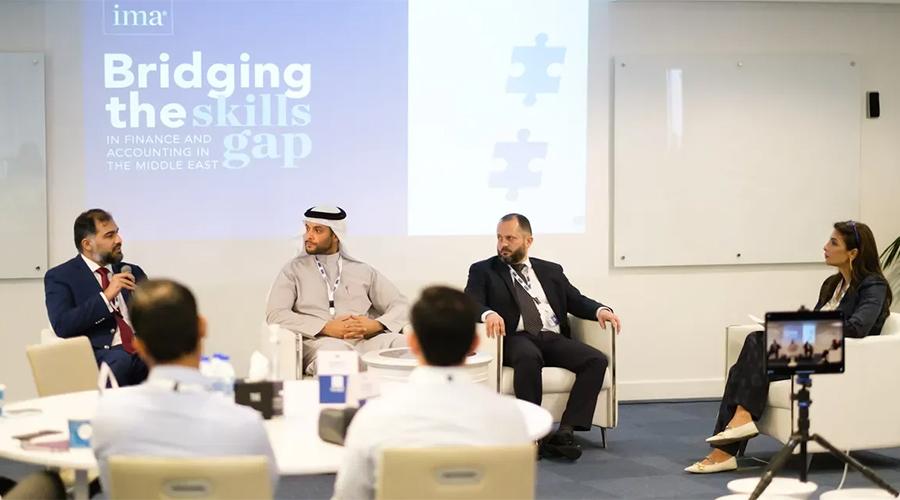- About
- Admissions
- Study at AUS
- Prospective Students
- Bachelor's Degrees
- Master's Degrees
- Doctoral Degrees
- Admission Publications
- International Students
- Contact Admissions
- Grants and Scholarships
- Sponsorship Liaison Services
- Testing Center
- New Student Guide
- File Completion
- New Student Orientation
- Payment Guide
- Executive Education
- Students with Disabilities
- Academics
- Life at AUS
- Research
- Contact Us
- Apply Now
- .

AUS accounting professor offers insight into the profession’s skills gap
Leading educators and professionals from the Middle East’s accounting and finance sector gathered for an event hosted by the Institute of Management and Accounting (IMA) entitled, “Bridging the Skills Gap in the Finance and Accounting Profession.” Dr. Abed Al-Nasser Abdallah, Professor of Accounting and Head of the Department of Accounting at American University of Sharjah’s (AUS) School of Business Administration (SBA) was a lead panelist at the event.
Hosted in Dubai and streamed across the Middle East, the event tackled the timely topic of skills shortages in the accounting and finance profession, driven by new data-centric business models, shifts in consumer behavior and economic uncertainties. With contributors from the region’s leading universities, the discussion centered on how education can better prepare students for their roles as professionals.
“What we are finding is there is a skills gap between the competencies those entering the workforce possess and those that are needed by employers. We need to look at how universities are preparing future accounting and finance professionals for the future world of work using the right content and curricula,” Dr. Abdallah said.
One of the major causes of the skills gap is the impact of rapidly developing technology on the profession. Advances in technology are seeing a shift in the types of tasks required of accounting and finance professionals. New technologies are removing the need for these professionals to perform many of the more mundane tasks required of them previously, and are opening up opportunities for these professionals to be more strategic and more focused on high-value tasks. One of the most important new technologies to affect the sector is Artificial Intelligence (AI). Technology will not replace professionals but it will facilitate their tasks, especially with the focus on big data and data analytics, and that is what we have introduced in our curriculum. Dr. Abdallah spoke about the emerging role of AI in the accounting and finance profession:
“AI facilitates greater insights for accounting and finance professionals in a highly efficient manner. But we need to ensure these professionals are upskilled to be able to effectively utilize these insights to the benefit of business. This is where educators can play a key role, ensuring those in their classrooms have the necessary skills to add value in workplaces upon graduation.”
SBA has a strong focus on providing skills-based, industry-relevant education, with AUS being named number one in the UAE and among the top 200 universities globally for accounting and finance, by QS World University Subject Rankings (2021). Internships are a key part of an SBA student experience, and students can hone their skills in facilities which include the region’s first Interactive Trading Floor (ITF). The ITF is home to a 23-seat learning environment designed to be an exact replication of the trading floor in a typical Wall Street or DIFC investment firm.
To learn more about accounting and finance programs offered at AUS visit www.aus.edu/sba.

